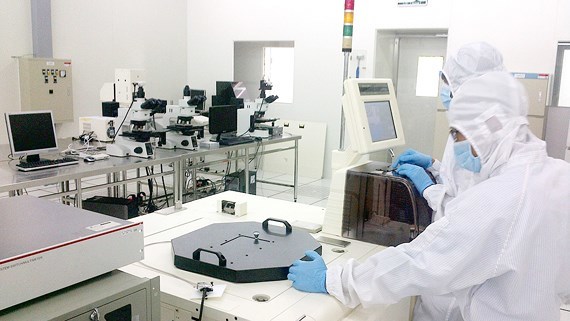
Using indigenous microorganisms (IM) as input materials, Nguyen Thi Minh from the Vietnam Academy of Agriculture has created biological products to improve soil which have lower cost and equal effectiveness compared with imports.
 |
Using indigenous microorganisms (IM) as input materials, Nguyen Thi Minh from the Vietnam Academy of Agriculture has created biological products to improve soil which have lower cost and equal effectiveness compared with imports.
Vietnam is among the top chemical fertilizer users in the world with 7.7 million tons a year sold every year. This has resulted in a high rate of degraded soil, according to the Forest Protection Department.
This situation also exists in many other countries. Foreign investors are spending big money every year to research and develop preparations to upgrade soil quality. Vietnamese enterprises are also making similar preparations to use on Vietnamese soil.
However, the products now available in Vietnam are mostly biological or chemical products which make the soil more moist and stimulate plants to develop.
But these preparations have weak points, including the limited time of use, just several months, since they contain live microorganisms such as photosynthetic bacteria, lactic bacteria and yeast.
This means that when the products reach farmers, they only have a very short time to use them as the quality of products is unstable.
Meanwhile, imported products are very expensive and unaffordable for the majority of Vietnamese farmers, around VND600,000 per liter. And they are unsuited to Vietnamese ecological conditions.
Many products can work well in other countries, but are ineffective on Vietnam’s land because exotic microorganisms have to compete with IM, and the effects are weakened.
(Source: VNN)





